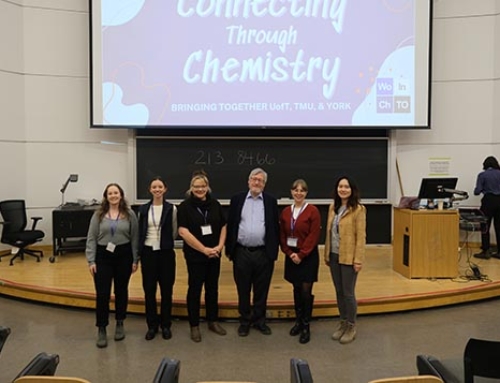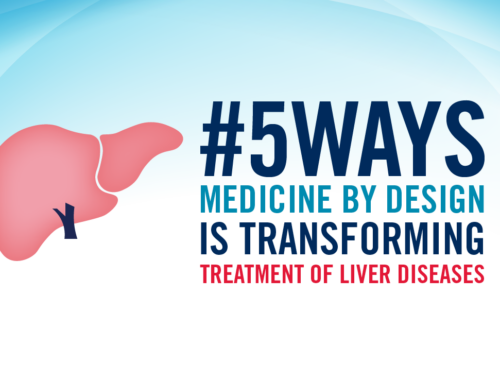Last week, several Medicine by Design-funded investigators were named Canada Research Chairs, and two received New Frontiers in Research Fund (NFRF) Transformation stream grants. Only seven projects across Canada were selected to receive funding through NFRF.
The Medicine by Design community of investigators includes more than 150 experts working on diverse aspects of regenerative medicine at the University of Toronto (U of T) and its affiliated hospitals. These experts are at the forefront of fields such as immunology, engineering, cell biology, transplant surgery, pharmacology and computational biology.
New Frontiers in Research Fund
UHN and U of T receive $24-million federal grant for repairing and rebuilding organs led by Shaf Keshavjee

Dr. Shaf Keshavjee leads a Medicine by Design-funded team project focused on the Ex Vivo Lung Perfusion system, and is the director of the lung transplant program at the Ajmera Transplant Centre, a Medicine by Design partner.
Researchers at University Health Network (UHN) and U of T have received $24 million to advance technology to repair and rebuild organs outside the body for patients in need.
The project, led by Shaf Keshavjee, is one of only seven across Canada selected to receive funding in the Government of Canada NFRF – Transformation competition, following an international consultation.
“The Ex Vivo Lung Perfusion (EVLP) system we developed here in Toronto has revolutionized lung transplantation in the past decade. Now, it’s been translated around the world to increase lung transplant access and it’s being extended to other organs,” says Keshavjee, a professor and vice-chair for innovation in the department of surgery in U of T’s Temerty Faculty of Medicine who is surgeon-in-chief at UHN and a senior scientist at Toronto General Hospital Research Institute.
“With this transformative grant, we now have the opportunity to take ex vivo technology to the next level, where we can repair and rebuild organs for transplant.”
Read the full story on U of T News.
Mending the gap: U of T’s Molly Shoichet joins team developing new treatments for spinal cord injuries

Molly Shoichet leads a Medicine by Design-funded large team project focused on better outcomes in treating blindness.
Spinal cord injuries can be devastating – and there are currently few options to reverse the effects, which can include paralysis, chronic pain and loss of bladder control.
But an international team of researchers, including the University of Toronto’s Molly Shoichet, hopes to change that.
“Over the past few years, we’ve made a lot of progress in tissue engineering, drug delivery and regenerative medicine,” says Shoichet, a University Professor in the Department of Chemical Engineering and Applied Chemistry in the Faculty of Applied Science & Engineering, the Institute of Biomedical Engineering and the Donnelly Centre for Cellular and Biomolecular Research.
“With this ambitious project, we bring world leading experts together to try to do something that no one else has been able to do: promote repair and regeneration in the injured spinal cord.”
Shoichet is a co-principal investigator with Mend the Gap, an international collaboration of more than 30 researchers, engineers, scientists, surgeons and social scientists from Canada, the United States, Europe and Australia. The collaboration this week received $24 million from Canada’s NFRF to advance their work.
Read the full story on U of T News.
Canada Research Chairs
Omar F. Khan, Canada Research Chair in Nucleic Acid Therapeutics,
Medicine by Design New Investigator
Professor Omar F. Khan (Institute of Biomedical Engineering and Department of Immunology) and his team of student researchers, the OFK Lab Blue Coats, focus on tackling diseases that are currently incurable and untreatable. Their secret weapons are a family of genetic building blocks known as nucleic acids, and nanotechnology.
“Nucleic acids are molecules found naturally in the body that act as instruction sets. They include RNA and DNA,” says Khan. “Cells in your body can read the instructions encoded in these molecules and perform the tasks in those instructions.”
“My lab works on discovering the right combination of instructions to help cells heal themselves, repair damage and even prevent disease. Complementarily, we also create the nanotechnology to deliver those instructions.”
Khan is among seven U of T Engineering researchers to be awarded Canada Research Chairs today.
Read the full story on UofT Engineering News.
Sonya MacParland, Canada Research Chair in Liver Immunobiology,
Co-investigator on a Medicine by Design team project focused on liver regeneration
Sonya MacParland has been awarded a Tier 2 Canada Research Chair in Liver Immunobiology.
MacParland is an Associate Professor in the Department of Laboratory Medicine and Pathobiology in the Temerty Faculty of Medicine and a Scientist and Immunologist at the Toronto General Hospital’s Soham & Shaila Ajmera Family Transplant Centre. She also holds a cross-appointment with the Department of Immunology.
Her research program is focused on translating fundamental knowledge about the immune biology of the liver into clinical applications. MacParland and her research team are using advanced genomics including single cell RNA sequencing to describe the microenvironment of the healthy and diseased human liver.
Read the full story on the Department of Laboratory Medicine and Pathobiology website.
Other Medicine by Design-funded Canada Research Chairs
- Benjamin Blencowe, Donnelly Centre for Cellular and Biomedical Research, Temerty Faculty of Medicine, tier one in RNA biology and genomics
- Penney Gilbert, Institute of Biomedical Engineering, Canada Research Chair in endogenous repair (renewal)
- Milica Radisic, Institute of Biomedical Engineering, tier one in organ-on-a-chip engineering
- Mikko Taipale, Donnelly Centre for Cellular and Biomedical Research, Temerty Faculty of Medicine, tier two in functional proteomics and proteostasis
- Bebhinn Treanor, Department of Biological Sciences, U of T Scarborough, tier two in spatially-resolved biochemistry
- Chao Wang, Department of Immunology, Temerty Faculty of Medicine and the Sunnybrook Health Sciences Centre, tier two in immunometabolism in neuroinflammation





